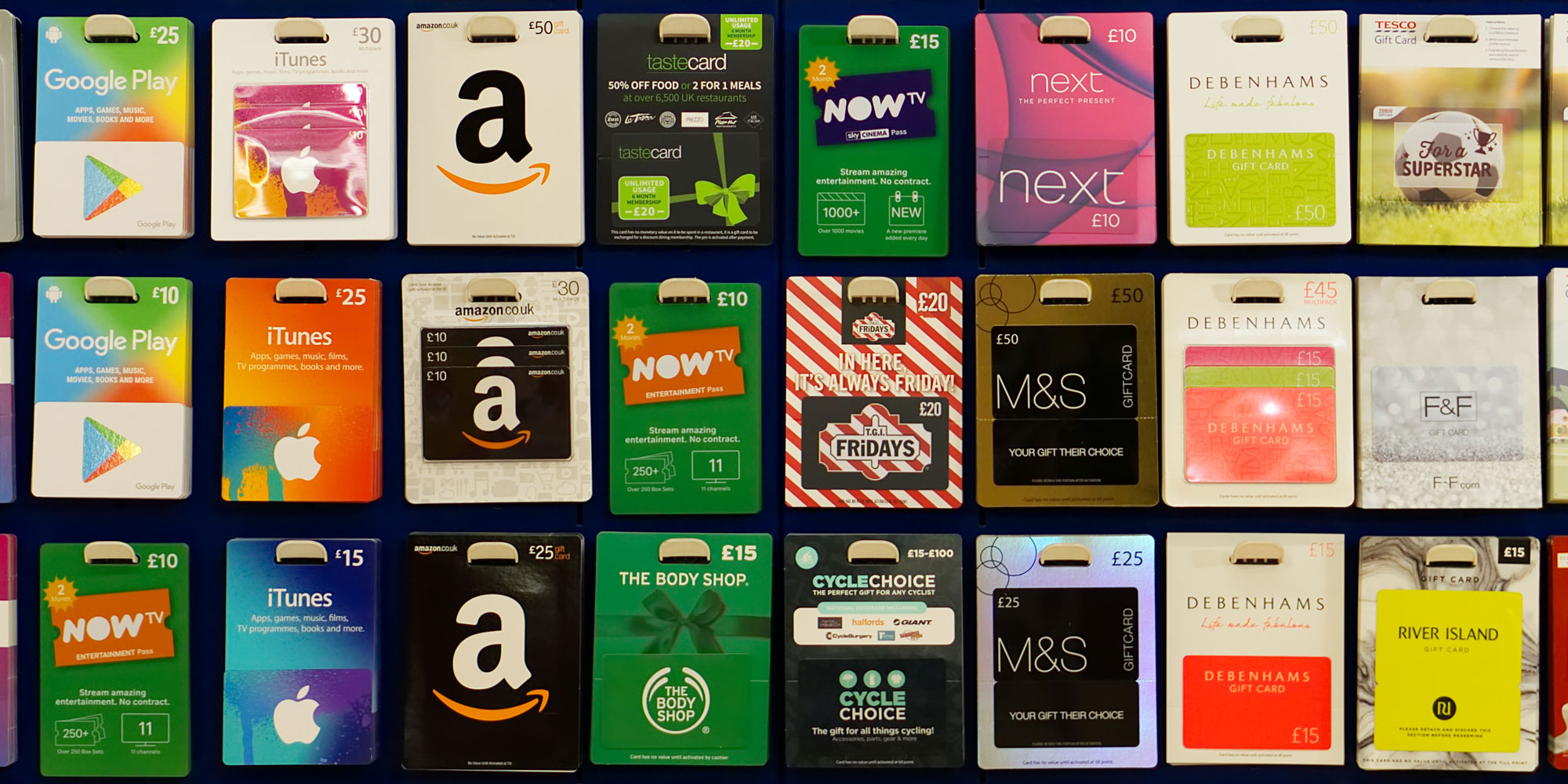How scammers use gift cards in their schemes

Scammers love gift cards because they're easy to buy, hard to trace, spent quickly and can be sold on.
To make things even worse for victims of gift card scams, it can be really difficult to get your money back.
Below, we outline the most common scams involving gift cards and how to avoid them.
Sign up for scam alerts
Our emails will alert you to scams doing the rounds, and provide practical advice to keep you one step ahead of fraudsters.
Sign up for scam alerts
1. Emails from ‘friends’
Scammers can impersonate your friends or colleagues to craft a convincing scam.
The sender's email account could be hacked, where the scammer has gained access to it through weak passwords or a data breach. Or, the scammer could have spoofed the email address – this is when a scammer masks the sender's email to make it look like the email came from a known contact.
The email will typically be crafted to give a fake reason as to why your ‘friend’ needs you to buy them gift cards. An example of this fake story that Which? has seen centred around a 'friend' losing their bank card while on holiday, and a gift card was urgently needed while they waited for a replacement card.
Which? also recently helped a person who was coerced into purchasing £600 worth of Apple gift cards by a scammer impersonating a senior colleague who said they were to reward staff with.
If you receive an email asking you to purchase a gift card, always contact that person using another method, such as via a phone call, to double-check it’s them emailing you.
2. Special offers and competitions
Posts on social media from hacked and scam accounts often advertise free or heavily discounted high-value gift cards at popular retailers.
These scams usually involve a malicious link that directs you to a website where you're asked to provide personal and financial details in order to receive the non-existent card.
Sometimes the posts lead to websites that impersonate the brand, making them more convincing. In other instances, the website will claim it's not associated with the brand. However, this doesn’t mean it's legitimate, and it’s best to avoid offers that sound too good to be true.
Similar scams using emails that impersonate well-known brands are also common. These emails claim to offer gift cards to spend at various retailers.
These messages often state that you’ve been selected to receive a gift card and need to follow a link to claim the offer. Typically, the link will lead to a malicious site that asks you questions about your shopping experience at the retailer the gift card is supposedly for.
If you receive an email claiming to offer a gift card, check the email address that it's been sent from – brands have email addresses that include their brand name. You should also examine the web address carefully using a domain checker, such as at who.is. Always be suspicious of a newly created website.
3. Job scams
Which? has previously warned about job scams where a person is asked to buy gift cards from supermarkets and then share the Pins with the ‘recruiter’ as part of a sham mystery shopper position.
If you’re contacted out of the blue or added to a group that advertises a job position, it's most likely a scam.
Jobs that you’re offered without an interview – where you're asked to complete simple tasks, such as liking social media posts or watching movies or you're asked to invest money into a platform in order to receive more tasks to earn more money – are scams and should be avoided.
4. Gift card draining scams
In this scam, the gift card is mysteriously drained of its funds by a fraudster who has managed to gain access to its balance.
This scam works in different ways. One is that fraudsters take the codes from the physical cards displayed in the shop and then steal the funds once money has been loaded onto it. They can also use an array of technology to test card numbers and Pin combinations to eventually get a match and quickly drain the balance.
Last year, we helped a person recover their One4All gift card funds after they found the balance had been drained. One4all told us at the time that customers who have experienced fraudulent activities on their gift card should contact its customer service team. It also told us it will reimburse their gift card.
If you have a gift card that's been drained without your knowledge, you should contact the gift card provider immediately to see if they can reimburse your lost funds.
Seen or been affected by a scam? Help us protect others
Sharing details of the scam helps us to protect others as well as inform our scams content, research and policy work. We will collect information relating to your experience of a scam, but we won't be able to identify your responses unless you choose to provide your contact details.
Share scam detailsHow to report a gift card scam
Scam emails can be reported by forwarding them to report@phishing.gov.uk and suspicious websites can be reported to the National Cyber Security Centre.
You can report social media posts and adverts by selecting the three dots in the top right corner and pressing ‘report’.
If you think you've been conned in a gift card scam, contact your bank and the gift card provider immediately to try and recover your money. Sometimes the gift card provider will be able to block the gift card.
If you lose any money to a scam, call your bank immediately using the number on the back of your bank card. Also report it to Action Fraud, or call the police on 101 if you’re in Scotland.



